Social-Emotional Learning is a huge buzzword in education and parenting. As a teacher, librarian, and parent to neurodiverse children, I come across the term endlessly. Committee for Children, a global nonprofit dedicated to social-emotional education, defines it as “the process of developing the self-awareness, self-control, and interpersonal skills that are vital for school, work, and life success.” The understanding that these skills need to be explicitly taught and continuously modeled is relatively new to public education. I’ve been a teacher for fifteen years and have really noticed an uptick in lessons and books about social-emotional learning (often called SEL) in the past five years. As an adult working hard in therapy to communicate without anger, advocate for myself, and recognize negative patterns before I spiral too deeply, I’m overjoyed that we’re addressing these skills early.
Almost any topic can fall under the social-emotional learning umbrella. Self-awareness is approached with books about listening to our body, recognizing cues for stress or anxiety, and using breathwork or coping strategies when upset. Interpersonal skills are addressed by discussing boundaries, celebrating community, and practicing scripts for dealing with conflict. There are great lessons available to help teach these skills, but almost every single one of them starts with a good book. Below, I’ve rounded up some of the best books for social-emotional learning. Some are straightforward, others educate through the narrative, but all of them will help develop a skill set that will benefit a person for their entire life.
I’m Just a Kid: A Social-Emotional Book about Self-Regulation by Chandele Morris and Jeric TanSelf-regulation is one of the hardest skills to learn, especially for school aged children who often internalize the idea that being quiet or calm is more about pleasing adults than finding peace for yourself. In this book, Ben struggles with big emotions when things go wrong, but practices using coping stratgies to feel better. |
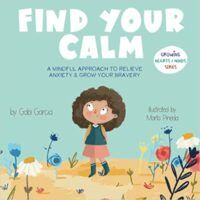
Find Your Calm: A Mindful Approach To Relieve Anxiety And Grow Your Bravery by Gabi Garcia and Marta PinedaFormatted as a lesson, not a narrative, this book explains the way that anxiety can show up physically in the body. It also uses accessible language (body sending a “false alarm”) and simple mantras (“I am safe”) to give kids tools to handle anxieties large and small. Gabi Garcia is a veteran of social-emotional learning titles, and this one is a must read. |
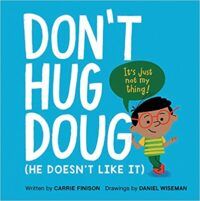
Don’t Hug Doug: (He Doesn’t Like It) by Carrie Finison and Daniel WisemanAre you kidding me with this perfect book? Bodily autonomy and consent are crucial skills for children. Still, there is more to it than saying no. In this book, Doug happily explains that he doesn’t like hugs, but he’ll take a high five! The message is also conveyed that it’s simple to find out if someone wants a hug or not: just ask! This is an excellent title to continue to develop a culture of consent where everyone can feel comfortable. |
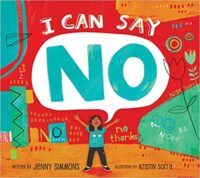
I Can Say No by Jenny Simmons and Kristin SorraMost adults I know struggle with this two-letter word, so I was incredibly excited to see that this book covered not only high-impact situations. The message here is that it’s okay to say no whenever — if you don’t want to ride bikes or watch a certain movie. Learning this word allows people to say yes to more things they really like. Understanding that no is not a negative is also crucial for people who might struggle when someone they love tells them no. All in all, this is an excellent addition to a social emotional-learning library. |
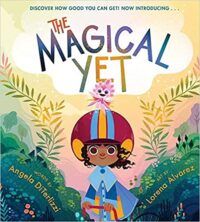
The Magical Yet by Angela DiTerlizzi and Lorena AlvarezGrowth mindset is an incredibly important facet of healthy emotional learning. This concept reinforces that we are teachable and capable of positive change. Having a growth mindset helps ease the sting of difficult learning moments. This beautiful rhyming book introduces the magical Yet that each of us is born with. Can’t swim underwater? Yet. |
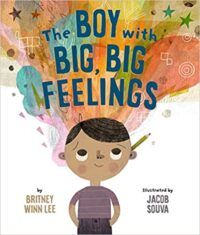
The Boy with Big, Big Feelings by Britney Winn Lee and Jacob SouvaThis book celebrates over-the-top expression of feelings. Even the fact that over-the-top is a phrase we use for effusive expression shows that our culture doesn’t usually praise this. However, many people, including highly sensitive and autistic folks, are not able to change the intensity of their feelings. This book, with a simply rhyming narrative, introduces us to a main character who realizes it is okay to let his big feelings shine. |
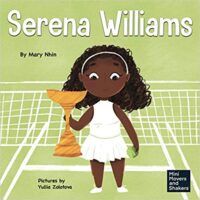
Serena Williams: A Kid’s Book About Mental Strength and Cultivating a Champion Mindset by Mary Nhin and Yuliia ZolotovaPart of a series linking notable people to different social-emotional strengths, this biography of Serena Williams focuses on mental strength. Sharing facts about her life and her great accomplishments while expressing that a champion mindset can be replicated in the reader, this book is interesting and encouraging! |
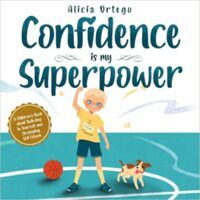
Confidence is my Superpower: A Kid’s Book about Believing in Yourself and Developing Self-Esteem by Alicia OrtegoThe Superpower Series by Alicia Ortego is a collection of books with different social-emotional concepts in each title. In Confidence Is My Superpower, we meet Leonardo. Setbacks at school have left him feeling down. With a few helpful affirmations, Leonardo realizes that failures are the key to success. This entire series is worth checking out to build emotional resilience in children! |
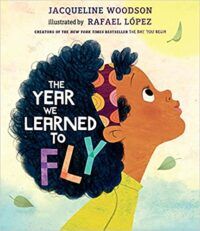
The Year We Learned to Fly by Jacqueline Woodson and Rafael LópezIn a typical day children might experience boredom, anger, and loneliness. In The Year We Learned to Fly, the inimitable Jaqueline Woodson shares the experiences of siblings going through different emotions throughout a year. Repeatedly, the children are encouraged to use their imaginations and other coping strategies (books!) to process and move on from their tough feelings. |
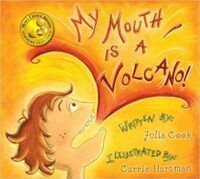
My Mouth Is A Volcano by Julia Cook and Carrie HartmanA classic in the social-emotional learning genre, My Mouth Is a Volcano deals with the issue of talking over others. The narrative does a great job of explaining why this problem happens (Louis’s words are erupting!) and how it makes others feel. Strategies for filtering thoughts and listening to others are shared. I love to use this with classes and then brainstorm ways to “calm our volcanoes.” |
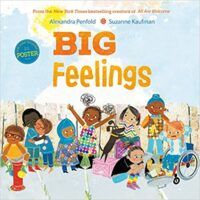
Big Feelings by Alexandra Penfold and Suzanne KaufmanWe wrap up this list with an overview of big feelings that would perfectly kick off a unit on social-emotional topics or a general introduction to a school year. Bright illustrations and pleasing rhymes help kids identify things that might spark big feelings. Next, solutions and coping strategies are named and celebrated. This pattern of noticing and regulating emotions is crucial, and this book lays it out simply. |
Looking for more books to help kids with their emotions? Check out this list of kids books about emotions. Happy reading!
Source : 11 of the Best Picture Books for Social-Emotional Learning











